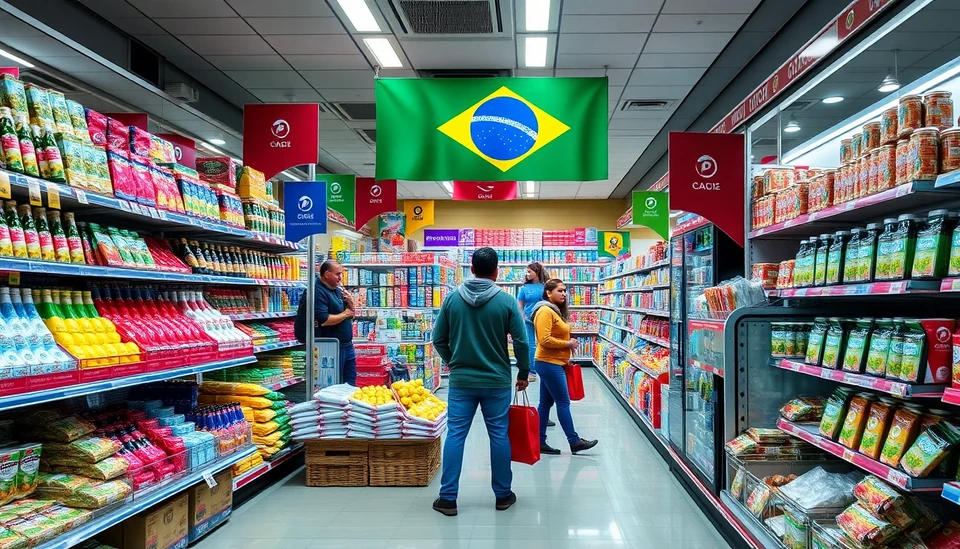
In a significant development affecting consumers across Brazil, the ongoing depreciation of the Brazilian real has led to price hikes in various retail sectors, with increases as high as 10%. The impact of this currency slump is not just an economic concern but also a crucial issue for everyday Brazilians who are witnessing their purchasing power erode.
The devaluation of the real has been largely attributed to a combination of domestic economic challenges and external pressures, leading to an environment where businesses are compelled to adjust their pricing strategies in response to rising import costs. As the real weakens, imported goods become more expensive, forcing retailers to pass on these costs to consumers.
Notably, grocery chains, clothing retailers, and electronics stores are among those that have reacted swiftly. Some businesses reported that adjustments were necessary to maintain profit margins amidst climbing expenses associated with acquiring goods. Shoppers have already begun to feel the pinch, with essentials like food and clothing taking a hit in affordability. In many cases, these price surges have left consumers scrambling to manage their budgets, prompting changes in shopping habits and a reconsideration of prioritizing purchases.
Retail analysts predict that the situation could worsen if the currency does not stabilize soon, indicating that further increases in prices might be on the horizon. "If the real continues its descent, we will see more adjustments across different sectors," remarked a leading economist in the industry. The concern is not only about immediate price hikes but also about long-term inflationary trends that could arise from ongoing currency instability.
In response, some retailers are exploring ways to mitigate price increases, such as sourcing products domestically when possible or offering discounts and promotions to attract consumers despite economic strain. However, as many grapple with the reality of a weak currency and its implications, the outlook remains uncertain.
The Brazilian government has faced criticism for its handling of the economic situation, with calls from various sectors for more effective policies to stabilize the currency and address inflation directly. Stakeholders are urging for a cohesive plan that can help restore confidence in the real and protect consumers from excessive inflation as they navigate this challenging environment.
As the situation unfolds, consumers in Brazil are left bracing for what might come next as they face rising prices in stores that reflect broader economic instability. The intertwining of currency fluctuations and retail pricing highlights a vital issue that impacts lives daily and poses critical questions for the future of the Brazilian economy.
With uncertainty looming, many are left wondering how sustainable these price hikes are and what measures, if any, will be put into effect to cushion the blow for consumers in Brazil amidst these turbulent fiscal times.
#Brazil #Economy #Currency #Inflation #RetailPrices #ConsumerImpact #BrazilianReal #EconomicCrisis #PriceIncrease #FinanceNews
Author: Laura Mitchell




